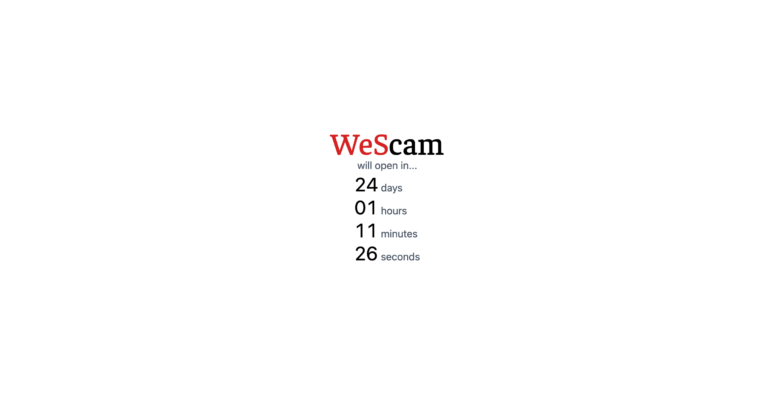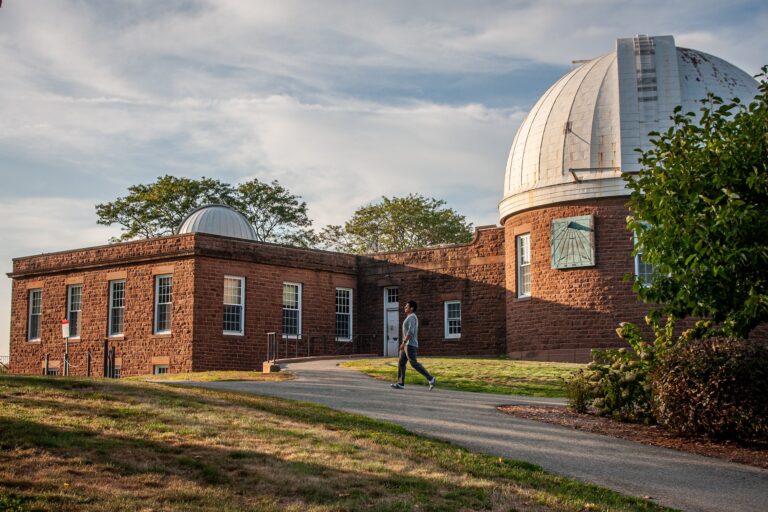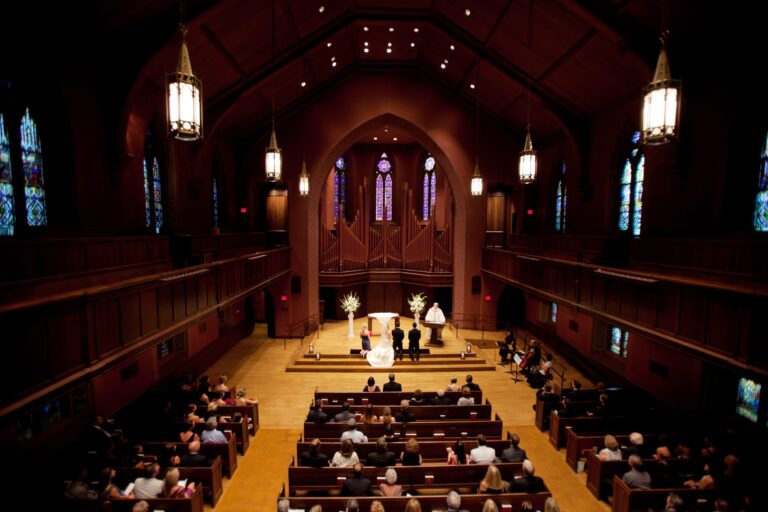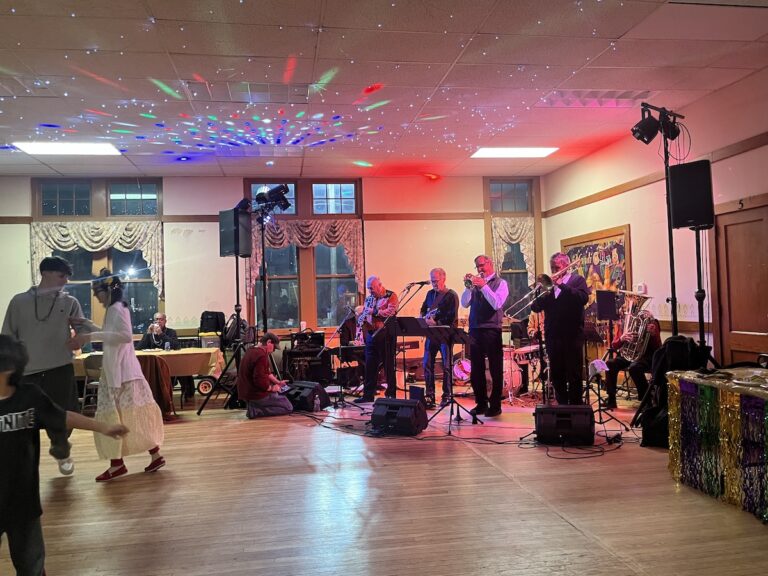When Work and School Collide: The Status of Work-Study
Last year, Aidan Martinez ’17 held three jobs on campus. During one period, he worked over 20 hours per week.
To put this in perspective, a typical academic schedule at Wesleyan University entails 10 to 12 hours of class per week, meaning that Martinez, a work-study student, spent nearly twice as much time at work as he did in class.
“I worked in New Media Lab, the Wesleyan Media Project, [and] the Bennet Res Life office, so I had to really juggle these things around,” Martinez said.
The University’s Financial Aid website explains why it is beneficial to employers to hire students with work-study eligibility.
“Federal Work-Study is a campus-based employment program that is subsidized by federal funds,” reads the University’s Financial Aid website. “Students that are eligible are allocated a specific amount of work-study that they can earn and apply to the cost of their education. 50 percent of a student’s wages are paid by these federal funds. So, for example, if a student is paid $9.00/hour, [the employer] would be responsible for $4.50/hour and the federal government would pay the remaining $4.50/hours up until you exhaust your work-study allotment.”
John Gudvangen, Director of Financial Aid, explained that the University does not place a limit on the number of hours students can work per week (although any student on a Visa is not allowed to work more than 20 hours per week by law). Instead, the University offers a maximum work-study allotment of $1375 per semester. Students may earn that sum at their desired pace.
Vice President for Equity and Inclusion and Title IX Officer Antonio Farias estimates that 1,000 students work up to 20 hours per week, but he recognizes that some students work beyond their work-study schedules.
“We don’t give that much work-study,” Farias said. “You’re supposed to have a max of about 20 work-study hours [per week]. But that doesn’t stop students from getting another job at the local pub or something. So they’ll do 15 or 20 hours here, and then get a job there, and it never comes on our radar.”
According to Martinez, Farias determined last year that nearly 80 students work above the recommended 20-hour limit, with some working up to 40 hours in a single week.
“When students come to Wesleyan, they’re supposed to go to school,” Martinez said. “That 20-hour maximum is intended [to ensure] that students do not overwork themselves or overstress themselves. But a lot of times, students go over this [amount] because that’s the only way they can pay off loans and tuition.”
While Martinez empathizes with students who work long hours to financially support themselves, he believes the University should take measures to prevent this situation.
“There should be no reason that anybody has to work over 20 hours,” Martinez said. “I think the 20-hour limit is good, if it just paid more. And I think it’s supposed to advocate to students, ‘You’re here for school; you’re not supposed to be working.’ But when students are working for bare necessities—they can’t support themselves, and their families can’t support them—and they can’t raise the work limit, [the University] needs to reassess how they’re paying students.”
Given that the University’s current financial aid program is committed to meeting all demonstrated need, it is hard to determine if students who work this many hours per week do so purely out of necessity.
“What we would like to do is find that core nucleus that’s going above 20 hours and find out why they’re doing it,” Farias said. “Is it because of financial need? Or is it because they have a certain lifestyle that they want to mimic? We know that some students want to mimic a lifestyle that they’re not part of. They’re working-class kids that want to mimic a lifestyle that is very middle class or upper middle class because they feel that going out to lunch with someone, everyone else throws down their money, and they have to sort of count….People make choices about needs and wants. We cover 100 percent of your need, but we’re not necessarily going to cover your want.”
Like Farias, Cindy Flores ’17 distinguished between need and want, pointing out that there are many students who want a job but are not eligible for work-study and that these students may be taking jobs that work-study students need.
“Last year I had a friend who had to do work-study as part of her scholarship, but she just couldn’t find a job anywhere,” Flores said. “It was really frustrating because we met other kids [with whom] we were acquaintances or friends that did jobs—they had jobs, and they weren’t on work-study—they were just regular kids who had jobs on campus, and I kind of feel like maybe we should give priority to kids who have to have work-study before we start hiring other people. If part of your scholarship says you have to make x-amount of money through work-study, and you can’t find a job, that scholarship money is still going to be owed, and you’ve got to get [money] from somewhere.”
Flores has worked at Olin Library through work-study since the first semester of her freshman year.
“Last year, spring semester, I worked 12 hours a week,” Flores said. “I worked weekends, which is where the extra four hours came in. I would work eight hours during the week, and I’d work fours hours between Saturday and Sunday.”
Currently, Flores works only during the week and finds this to be a pleasant change of pace.
“I want to focus on my academics, and I can’t tell you how nice it is to have my weekends free and not have to go in and work on weekends because the weekend is a really nice break,” Flores said.
That said, Flores will likely pick up more shifts this spring, as she feels pressure to earn more money.
“Next semester, I think I’m going to have to start working weekends again [because] there’s just no way I can get by,” Flores said. “So I guess I’ll have to be sacrificing more weekend hours, unfortunately.”
While some students are trying to balance multiple shifts, and other students are trying to balance multiple jobs, many students are simply looking to get hired.
“I know that a lot of students want to work on campus, but they’re not able to,” Martinez said. “It goes back to one student having three or four different jobs. One solution would be for the University to pay students better—not raise the minimum wage of Connecticut but the minimum wage of Wesleyan. If Wesleyan really cared about the sustainability of their student population, in my opinion, it would be, ‘Let’s raise the minimum wage for us.’”
However, Flores said that broader changes would have to be made.
“I think that if you wanted to have more work opportunities, the [maximum] amount of money you can make per semester that the government would cover would have to be raised, or it would just be impossible,” Flores said.
Farias cited literature that suggests working in moderation boosts students’ grades.
“What we don’t want to do is cripple students and think that work is something to be avoided,” Farias said. “It actually helps build your character, puts money in your pocket, and it also forces you to have more structure in your time. Up to about 15 to 20 hours, it helps your grades.”
Still, there are consequences for working many hours per week: Students report missing out on social life and extracurricular activities such as clubs and sports teams.
“Some students say, ‘We work, but we feel that we’re missing out on part of the Wesleyan experience because our classmates are very well off and don’t have to work, so they can go on the ski trip, and go do this, and I have to work,’” Farias said. “And the answer to that is yes, that is the world as we find it. That’s the reality.”
Martinez has found that students who work are faced with a conundrum: In their nonworking hours, they must choose between prioritizing academics or social life.
“Academic life suffers, social life suffers,” Martinez said. “It’s a trade-off: Either you pick your academic life to support, or you pick your social life. If you pick your social life, your academic life falls. And vice-versa. It’s really hard to make a balance. It gets really stressful, really quick.”
The most hours Martinez has heard of someone working per week is 40. The number is mind-boggling to him.
“That’s 9 a.m. to 5 p.m., a regular workday,” Martinez said. “It doesn’t seem possible: Where do you put the class time in, the study time, the extracurriculars? Most people don’t decrease academic life because they want that to stay strong. So they decrease social life, and they miss out on opportunities to network with people who might come in handy in the future, or going to extracurriculars that might look good on a résumé, or playing a sport that will keep them healthier for longer. It’s just really sad.”
Flores remembers that working 12 hours per week last spring took a toll on her social and academic life.
“It was really difficult because…that’s still 12 hours that you’re not getting to put into your schoolwork, that’s 12 hours that I don’t have for either sleep, or doing work, or even…relaxing,” she said. “It’s really just a high-stress situation. I barely saw any of my friends at all spring semester last year. People would invite me to things constantly—events that the school was sponsoring, or talks—and I couldn’t go because I was busy working…It was really difficult, which is why this year I elected to only work eight hours, which isn’t looking all that great financially, unfortunately for me.”
Moreover, Martinez explained, there seems to be a dearth of mental health resources for students who find the balance difficult to navigate.
“CAPS [Counseling and Psychological Services] is over-booked, so people who really need someone to talk to don’t have anyone to talk to,” Martinez said. “All these resources are just falling apart on campus right now.”
Farias is concerned about low-income students’ comfort levels with seeking mental health support; he noted that many students struggle on their own rather than reach out to services such as CAPS. His goal has been to decrease the stigma around mental health support.
“It’s getting people to understand that there’s nothing wrong with them,” Farias said. “There’s nothing wrong with being poor. It’s not an illness or something to be ashamed about, but it’s something that you have to get a grip on in terms of what it means to you in a place as affluent as Wesleyan.”
An added challenge for low-income and first-generation students is what Farias calls code-switching: adjusting to being at the University and then adjusting to being home during breaks.
“[Students] can make the transition into a place like Wesleyan, but the question is how they make the transition back into home,” Farias said. “For some students, it’s as simple as the cafeteria food. Some students have never had that. How do they translate that back to home? The psychic break that happens with some students…when switching between one world and another…is normal.”
Farias noted that students who are struggling generally reach out to friends, but Martinez pointed out that asking even friends for support can be tricky.
“[One of my friends] knows that there are certain people she cannot talk to about this because it guilts them,” Martinez said. “They feel like they’re guilty. In reality, we’re just like, ‘I can’t do that because I have to work.’ When you wade into these waters of not being able to do things because you can’t afford it, especially at a place like Wesleyan…it’s hard. There’s the liberal guilt as well: ‘I don’t want to feel like I’m part of the one percent, hoarding the money,’ so when you identify as someone who’s struggling, that person feels even guiltier.”
According to Martinez, some students have the added burden of supporting their families.
“One of the students that I know is an R.A.,” Martinez said. “R.A.s get paid a very large amount of money, but she has to support her family back home, and one time they couldn’t pay the bills, so she had to send all her money to her family in New York to pay. She was here, broke, and couldn’t do anything about it. I think that’s a big problem for low-income and first-generation students: It’s the first time they’ve left home, or anyone in their family has left home. So they don’t have a support system, or parents, to talk to and ask, ‘How did you get through this?’”
For first-generation students especially, seeking advice from parents can be difficult.
“A lot of parents just don’t know what’s going on, especially first-generation parents,” Martinez said. “It’s like, ‘My child’s at some school, doing something.’ A lot of students rely on their parents for advice, guidance, and love and support, and a lot of students don’t have that. When they tell their parents, ‘I’m working 20 hours a week,’ their parents will just say, ‘Oh, that’s good’….Higher education is just such an enigma to people of first-generation status.”
Students are therefore left to their own devices. Martinez is meeting with the Board of Trustees soon to speak about possible solutions to these challenges.
“[Solutions] are something I always struggle with,” Martinez said. “The University doesn’t want to give a handout, and there’s value to people working for their education somewhat. But I think just in general, the federal program with Pell Grants needs to be expanded. And Wesleyan can, or should, give out bigger Wesleyan scholarships to offset it. What I hate about the [Office of Financial Aid] is that you go up to them and say, ‘There’s no way I can work this [many hours] and work out my allotment like that,’ and what they’ll say to you is, ‘Oh, okay, we’ll give you a loan.’ So instead of working for the money, they’ll give you the money but expect you to pay it back, which is just not very effective.”
Last year, Martinez served as the Quest Liaison. In this position, he was tasked with supporting fellow recipients of the Quest Scholarship, a program that recognizes low-income, high-achieving students and assists them in applying to top-tier institutions. Through that position, Martinez became increasingly aware of the need for a community of first-generation and low-income students on campus.
“I really wanted to have a low-income, first-generation reception because there’s queer-student, student-of-color receptions—everything else, but not first-generation,” he said. “When I ran [the reception], it was really surprising because there was a ton of faculty, a ton of administration, and a ton of staff. I’d never seen these people before, and they’d come out of the woodwork to support. And so I really think that [at] that moment—and there [were fewer] students than there [were] people to support them—they realized that we need to do something about this.”
Torii Johnson ’17, the current Quest Liaison, stated that she hopes to continue to build the low-income community at the University and eventually see a resource center on campus.
“I think that Wesleyan really loves to publicize how many kids they have on financial aid, how many low-income kids they have, how many Quest Bridge scholars they have, but then we get here,” Johnson said. “This year, luckily we’ve had a lot of support from faculty, but it’s not something that we’ve usually found…. I’m not saying in anyway that Wesleyan does a bad job, I’m saying that they can always do better.”
Farias is impressed by Martinez’s and Johnson’s desire to unite first-generation and low-income students.
“Groups like what [Martinez] is doing, what [Johnson] is doing—getting working-class, first-generation students together and having this office be a central node for getting them together—is an attempt to get them to form community so that we can have real, honest conversations so we can get to, ‘Why is it that students are working so much?’” Farias said.
The University, Farias noted, has many resources for students who are struggling financially. Part of the challenge has been making these resources visible and available to those who need them. To that end, Farias has asked each department what resources they offer; he plans to compile these resources into the Diversity Office, which will act as a central hub.
Martinez has been surprised at the discovery of the University’s vast and extensive resources.
“We learned about the [Davison] Health Center having a fund for people to pay for prescriptions,” Martinez said. “The Career Center [also] has a fund for people who can’t afford business attire that they need for their interviews. There’s this thing called the Dean’s Discretionary Fund that students can apply to, so if there’s an emergency, and they need to fly home or something like that, they can. So there’s a lot of resources on campus, but nobody talks about them.”
Johnson also stressed the importance of the resources being made visible to students.
“It would help for the administration to actually seek out students, rather than students having to seek them out,” Johnson said. “Most kids don’t want to talk about it. They don’t want to say to the kids who have really well-off parents who’ve been taught not to talk about money and are told that it’s not polite to talk about how much they have that they don’t understand work-study, that they don’t know how to apply for loans.”
The community that Martinez and Johnson are instrumental in building will strengthen the bridge between the University’s resources and its students.
“The worst thing possible is to come to an institution and suffer by yourself,” Farias said.
Martinez hopes that this community will relieve some anxiety about discussing issues of income.
“It’s hard to talk about these things,” Martinez said. “It’s hard to identify yourself as first-generation or low-income because there’s no marker on your forehead. Race is very clear, gender is fairly clear, sexuality arguably. But first-generation, low-income: Anybody can be it, anybody can look it. It’s getting people to realize, ‘There are people like you.’”
Farias sees enormous potential for Martinez and Johnson’s joint initiative.
“I’m most proud of the students for taking leadership and ownership and saying, ‘This matters to us. We’re no longer going to be invisible about this,’” he said. “Certain students, like the QuestBridge students, are already aggregating naturally, but what I’m most concerned about are students who don’t affiliate, who don’t want to deal with it. The lone wolf, the one that says, ‘I can do this on my own. All I have to do is work harder.’”







Why is most of the reporting here from second hand sources? Aidan Martinez might have friends who have experienced 40-hour work weeks, but if he does not personally, it doesn’t make much sense for him to be the spokesperson for those people. This is absolutely not a knock on him, but on the reporting here — the reporter’s job is to reach out to people with firsthand perspective on the issues at hand or those who are authorities on the issues at hand.
Thank you so much for bringing the issue to light. As a low income student myself, I think that this doesn’t get talked about enough.
I also wanted to mention that another factor that plays into working so much every week is that you miss out on a lot of the community-building activities that happen both on and off campus. More than just “social life,” when you are working, you don’t have time for much else besides school work. There are so many incredible opportunities at Wesleyan that aren’t likely to be offered again, but you simply don’t have time to take advantage of them.
Another thing that falls to the wayside is volunteer opportunities. Almost every job application, internship application, and (ironically) scholarship application that I have ever applied to has asked about what volunteer work I have done. But the truth is that I don’t really have time to commit to significant volunteer hours, much as I would love to.
Don’t get me wrong, I love my job, and I like that there are a lot of work opportunities on campus that are only offered to work study students. That being said, I think that low income students are not really talked about that much here, and I think that there are a lot of issues that need to be address, so I hope that this conversation continues.